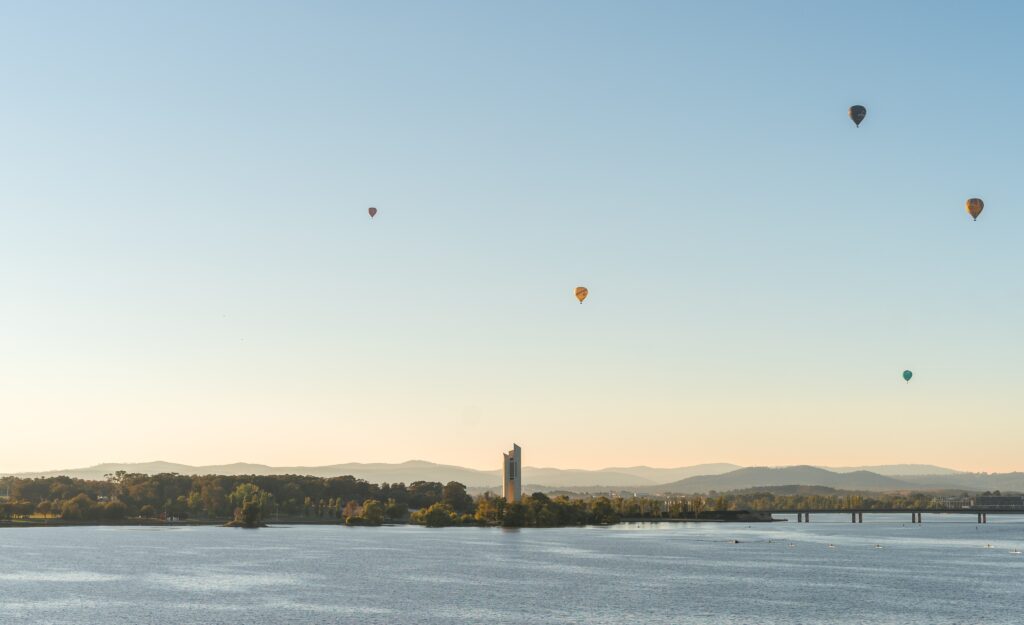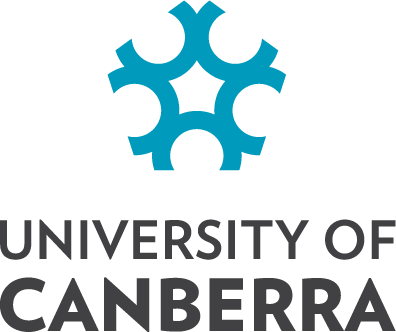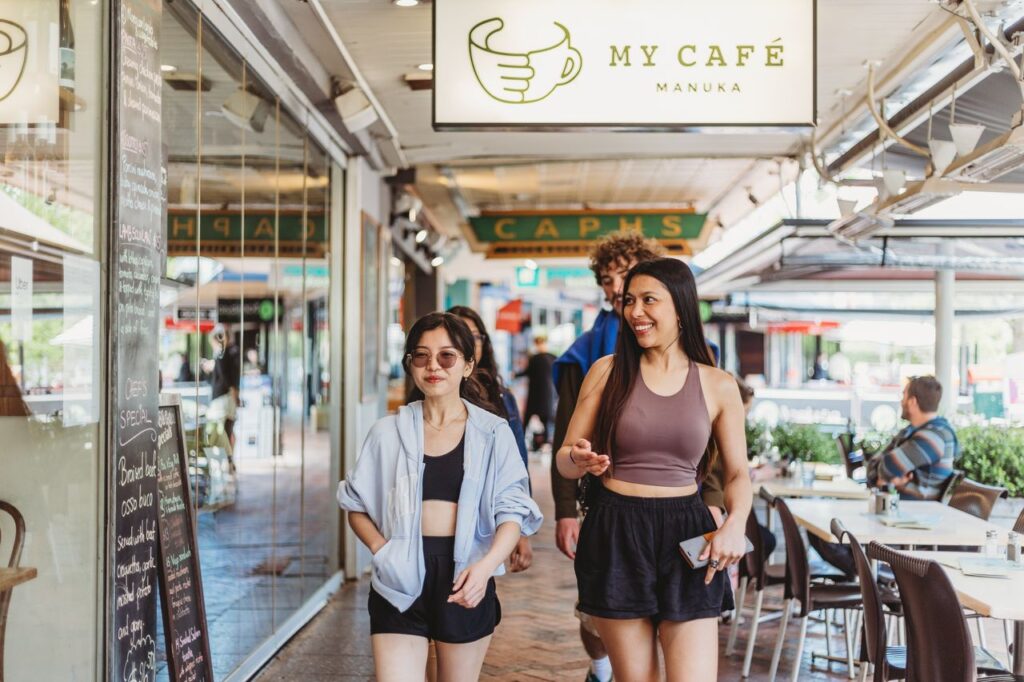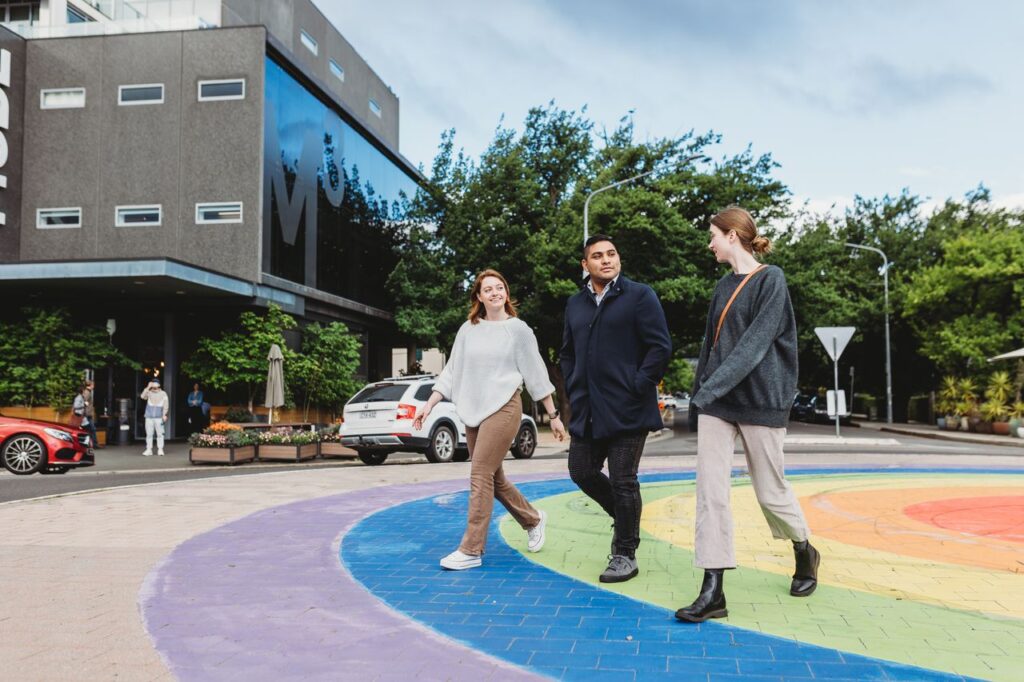Moving to a new city or country to study is no easy task.
Between enrolling in classes, finding a place to live, choosing your new favourite lunch spot, and even deciding what to pack, international students coming to Canberra for the first time face a whole range of unknowns.
But fear not! To help answer some of the most common questions overseas students have about studying in our nation’s capital, we spoke to University of Canberra (UC) Master of Communication student, Kiron. Guided by his first-hand experience as an international student, we address your frequently asked questions about Canberra, exploring everything from budgeting and being away from home to the unique opportunities the city offers.
1. Is studying in Canberra worth it?
While the answer to this question will be different for each person based on their personal goals, Kiron wholeheartedly believes it was the right decision for him.
“I believe that whatever you put in is what you get out,” he shares.
“It’s like an investment in yourself. There is a high risk, but it is definitely worth it because if you make the most of your opportunities, of which there are many, then you can win. With high risk, there is high reward.”
2. How much money will I need to study in Canberra?
Everyone’s student budget will be different! As a requirement of your Student visa (subclass 500), you will need to prove you have access to AU$24,505, which is your estimated 12-month living costs. However, when you move to Canberra, you will find that your lifestyle and ability to budget will have the most impact on how much money you spend.
Costs like your tuition, accommodation, groceries, transportation, phone bills and other necessities will be important to account for but don’t forget to budget for personal needs such as a fitness membership, entertainment and shopping.
Fortunately, Canberra’s cost of living is lower than many of Australia’s other state and territory capitals, so you’ll find your money goes further here.
3. Will I “make it” as an international student?
This question is up to your perception of what “making it” means for you. This could mean many different things like achievements from an educational standpoint, financial gain, or making social connections. This will also depend on your definition of success.
“All the resources you need can be easily found in Canberra,” Kiron says.
“It’s definitely possible to “make it” – it just depends on what your goals are, how tenacious you are, how hard you work and how focused you are,” he adds.
4. How can I get around the city?
Canberra has an extensive public transport system of buses and light rails, making it easy to get around. It’s cost-effective and connects major key spots around the city like campuses, libraries, parks, restaurants and museums.
Canberra’s network of flat, shared paths also means it’s great for cycling or e-scooters.
5. Will I be able to make friends easily?
Canberra is a multicultural city with many fantastic opportunities to connect with new communities while maintaining cultural and social ties from your homeland.
Kiron acknowledges building new friendships is down to how willing students are to put themselves out there and adapt to the Aussie way of life.
Your education provider will often host events to encourage people to get to know each other. For example, UC Events are a great way to meet fellow students.
6. What opportunities will I find in Canberra?
Employment opportunities will vary depending on what you’re looking for. From Kiron’s experience, he’s recognised there are ample opportunities, for not only employment but high levels of education and networking in Canberra.
“If you’re someone who’s looking to come to Canberra and aspire to migrate and eventually work here, I think there are far more opportunities [than other Australian cities],” he says.
“If you work hard and do your best, there are a lot of opportunities. It’s a great country where people appreciate hard work,” he adds.
7. What are some tips for working in Canberra as a student?
If you’re applying for jobs while you’re studying, Kiron recommends searching for work with the intent of seeing what value it can provide you, beyond the financial benefits.
“Most students resort to casual jobs that pay well. However, focussing on longer-term goals might be a better strategy to achieve your goals in this country,” he explains.
Kiron also stresses the importance of prioritising your education.
“I have friends who focused more on work and ended up failing units which they had to pay to re-take.”
8. How will I cope with being away from home?
While everyone will deal with being away from home differently, Kiron suggests creating comfort zones to help those feeling homesick.
“Having an area where you feel calm and where you can ground yourself is very important. There is a lot of beautiful nature in Canberra. Sit beneath the trees and take it in.”
Technology has also made being away from home a little bit easier. Although video calling your family and friends isn’t quite the same as being there, it can help!
9. What are the best things to do in Canberra?
There’s something for everyone in Canberra! Nature lovers can enjoy bushwalking, catching the sunset from the top of Red Hill of Lake Burley Griffin or trying snow sports in the winter. For a taste of art, history and culture, the National Gallery of Australia, Australian War Memorial and National Museum of Australia are all unmissable. Or, just explore all of the incredible street art! If you’re a bit of a foodie and enjoy nightlife, Canberra is packed with superb restaurants, hidden bars to explore and live music venues.
With the amazing range of festivals on offer, there are also unique, year-round events to check out. Enlighten Festival, Floriade and the National Multicultural Festival are all great options.
10. What should I pack when moving to Canberra?
Canberra is known for its cooler climate so be sure to pack warm clothing during the winter months. This can include puffer jackets, thermal underwear and warmer knits. It can also get very hot, so it’s important to choose layering pieces that can be worn throughout the year. Opt for singlets, t-shirts and button ups that can easily be taken on and off.
Just remember Australia is in the Southern Hemisphere which means the summer months last from December to February, and the peak of winter is in July and August.






